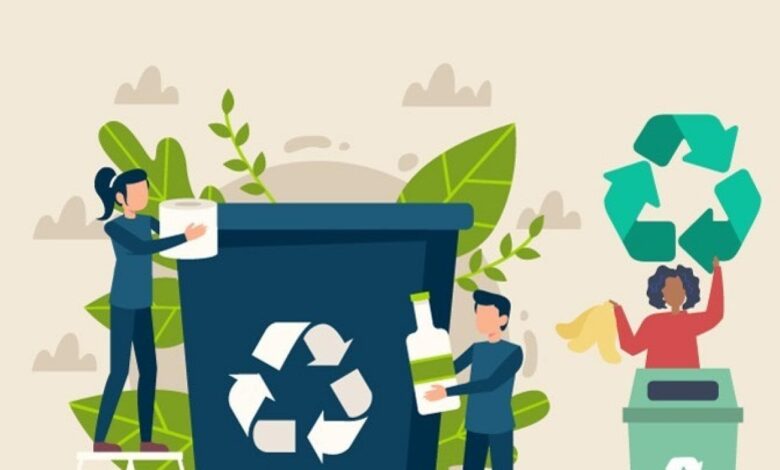What Are the Environmental Effects of Poor Waste Management?

Introduction
Though trash management is a necessary part of modern society, it nonetheless causes problems in many different nations. Major environmental problems felt everywhere are related to inadequate waste management systems and incorrect disposal of waste. From air pollution to habitat destruction, poor waste management has wide effects on not just the environment but also human health and diversity. The effects of poor waste management on the environment and the justification for sustainable practices for governments and communities are examined in this study.
Environmental Effects of Poor Waste Management
Air Pollution from Waste Incineration
One of the most rapid effects of poor waste management on the environment is air pollution. Waste is burned in numerous places either in improvised incinerators or open landfills. This mechanism drives harmful gases including carbon monoxide, carbon dioxide, and volatile organic compounds (VOCs) into the environment. These gases contribute to creating climate change by increasing the concentration of greenhouse gases, therefore exacerbating global warming.
Soil Contamination
Improper waste disposal results in soil pollution whether waste is dumped straight on the ground or in open landfills. Waste’s hazardous elements—heavy metals (lead, mercury, cadmium), chemicals, and untreated sewage—can seep into the ground and change its chemical makeup, therefore compromising its fertility. This pollution influences plant life and can finally render the ground unfit for farming.
Waste that seeps into the earth can potentially poll groundwater, rendering irrigation and drinking dangerous. Toxic elements in the soil and water can have an impact on nearby ecosystems as well as damage species depending on the ground for food or cover. Seeking help from cheap skip hire can help you in effective waste disposal and preventing environmental pollution.
Water Pollution
Another main environmental result of inadequate waste management is water pollution. Waste improperly disposed of in or near water bodies—such as rivers, lakes, and oceans—introduces dangerous chemicals, plastics, and other contaminants into the ecosystem. This pollution disturbs habitats, poisons fish, and upsets the delicate equilibrium of marine ecosystems, therefore harming aquatic life.
Particularly plastics provide marine life a great cause for concern. Often resulting from inefficient waste management, oceanic plastic pollution can cause animals to consume or get caught in plastic waste, resulting in damage, malnutrition, and perhaps death. Further contaminating aquatic environments are waste-based pollutants such pesticides and industrial solvents running off into streams.
Airborne Microplastics
Among the most ubiquitous toxins in waste, plastics can find their way into the environment in several forms when waste management systems fall short. Inappropriate handling of plastic products in particular helps to spread airborne microplastics by poor waste disposal methods.
When waste including plastic products is burned or left to break down in open landfills, these small particles enter the air. Microplastics can gather in the atmosphere over time and endanger the ecology as well as human health. Long-distance travelling and the ability to enter the natural environment allow these particles to influence the food chain and wildlife.
Wildlife Threats and Habitat Destruction
Inappropriate waste management methods might seriously endanger species and destroy natural environments. For animals, landfills and waste dumps often create hazardous environments. Hazardous products or waste can trap or poison birds, mammals, and insects. Animals may also confuse human waste—food scraps or packaging—for food, which causes starvation or poisoning.
Moreover, the building of waste dumps in or close proximity to natural environments disturbs ecosystems and drives animals to migrate or suffer food and shelter loss. Additionally impeding water supplies, destroying plant life, and causing soil erosion is the accumulation of waste in these places.
Climate Change and Greenhouse Gas Emissions
Inaccurate waste management greatly fuels climate change. Organic elements like food waste and plant matter decompose anaerobically (without oxygen) when incorrectly disposed of in landfills, generating methane, a strong greenhouse gas. Many times more globally warming than carbon dioxide, methane can help to hasten climate change.
Burning waste also sends carbon dioxide and other greenhouse gases into the atmosphere, hence aggravating global warming. If waste management activities depend on fossil fuels instead of greener, renewable sources of energy, the energy consumption related to them also contributes to carbon emissions.
Loss of Biodiversity
Bad waste management policies greatly affect biodiversity. From landfills or waste dumps, toxic waste, pollution, and the destruction of natural habitats cause the loss of species depending on particular settings for survival. Harmful chemicals entering ecosystems can lead to developmental abnormalities, reproductive failure, and species demise.
The loss of medicinal plants, disturbance of food chains, and collapse of ecosystem services including pollination, water purification, and soil fertilisation all follow from this fall in biodiversity. Many times, the loss of biodiversity resulting from incorrect waste management takes decades or perhaps centuries to recover.
Public Health Concerns
Inadequate waste management has direct bearing on environmental impacts related to human health. Direct hazards to public health abound from contaminated soil, water, and air. Illnesses including cholera, dysentery, and other waterborne diseases can result from toxic substances leaked from carelessly disposed of waste contaminating food and drink supplies.
Furthermore aggravating respiratory issues, heart ailments, and even cancer is the breathing in pollutants from burning waste. Inappropriate waste management can also help pests including mosquitoes, flies, and rats—which flourish in filthy waste environments—to transmit their diseases.
Conclusion
Bad waste management has far-reaching and terrible consequences for the environment. From pollution and habitat destruction to climate change and public health hazards, irresponsible waste disposal seriously compromises ecosystems, wildlife, and human populations. Governments, companies, and people themselves must embrace sustainable waste management techniques if we are to lessen these effects.



